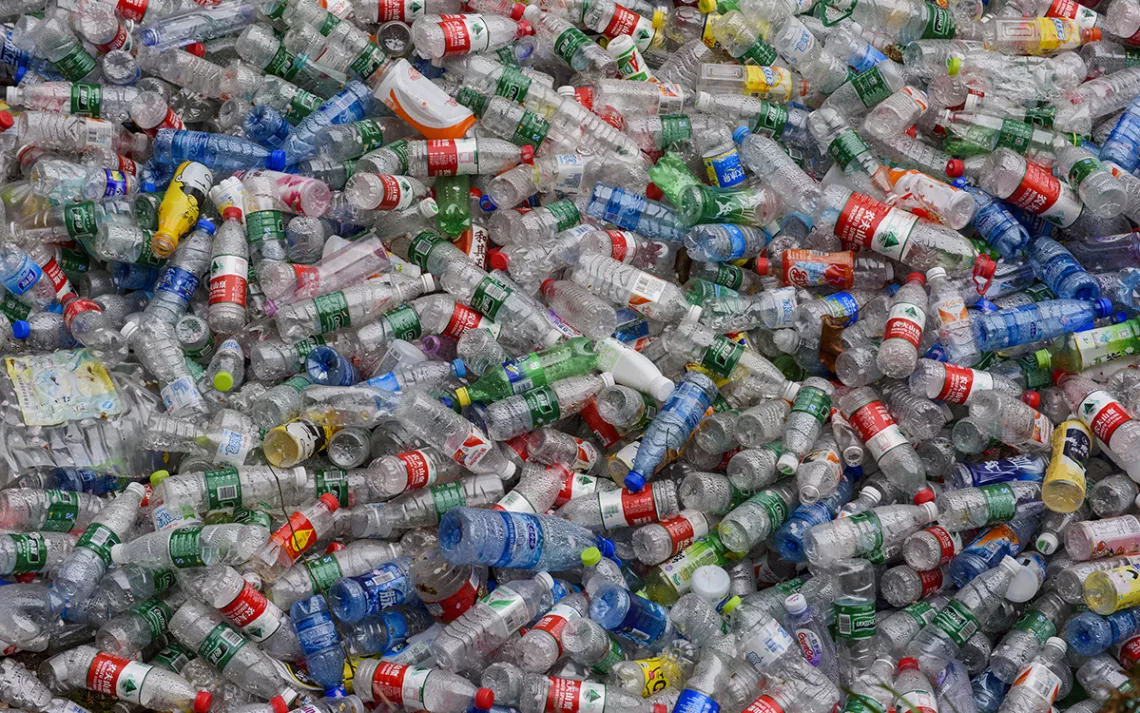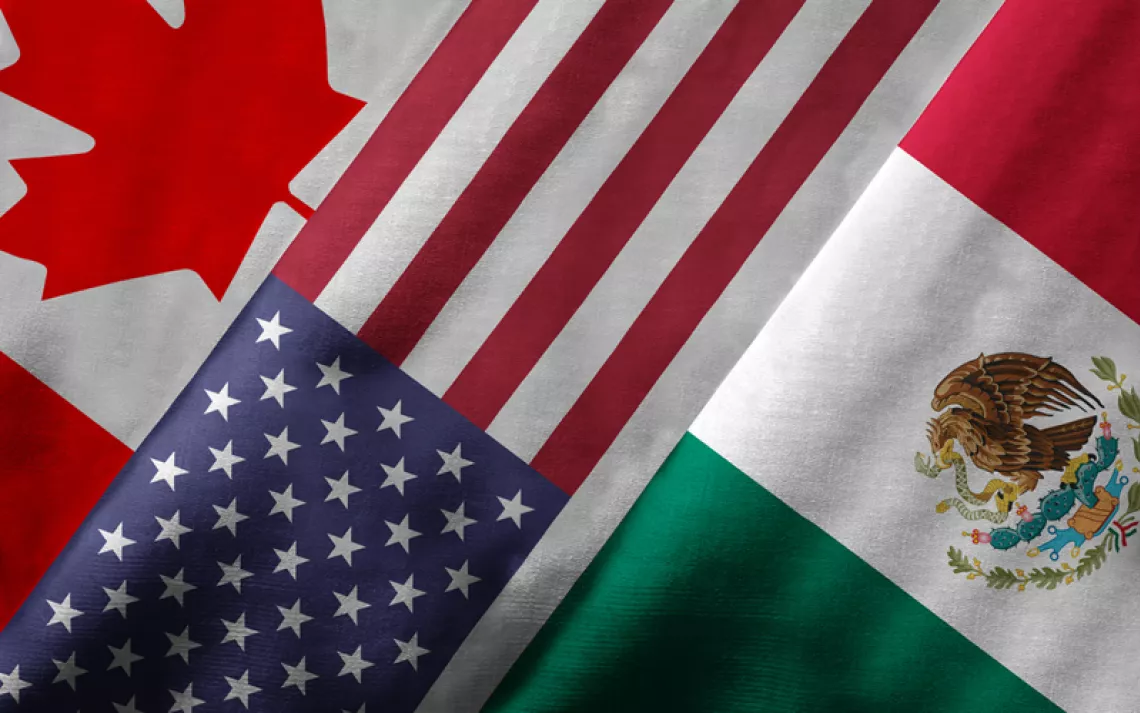Environmental Casualties of Trump’s Trade War
Recycling chaos, water pollution, and more expensive e-bikes

China put a 25 percent tariff on your Dr. Pepper bottle. | Photo by Grosescu Alberto Mihai/iStock
“Trade wars are good, and easy to win,” our president tweeted enthusiastically in February before embarking on tariff tussles with China, the European Union, and even Canada, all in the interest of reducing the U.S. trade deficit. Seven months later and victory is not exactly within sight: Despite sweeping tariffs, trade deficits with China and Europe continue to rise, with U.S. exports taking a nosedive. In July alone, the overall U.S. trade deficit increased by 9 percent.
Trump’s trade war has followed the escalatory nature of such conflicts, with the parties imposing tit-for-tat penalties on each other’s products. After the U.S. penalized steel and aluminum products from the European Union, for example, the EU retaliated with tariffs on U.S. goods like Harley-Davidson motorcycles and Kentucky bourbon, notably produced in Republican districts. In late August, the U.S. imposed a new round of tariffs on $16 billion worth of Chinese goods, prompting threats of a counter-move by China.
Every conflict has its collateral damage, and Trump’s trade war is spilling over into the green economy. Here is a partial reckoning of the environmental wreckage left by this sudden outbreak of mercantilism:
Plastic and cardboard recycling: For some time, China has been tightening up it standards on what raw material it will accept from the United States for recycling. The trade war has exacerbated this situation, with China planning to levy a 25 percent charge on corrugated cardboard, paper, scrap plastic, and other materials. China is insisting on higher-quality bulk recyclables as well. It will now accept only bales with 1 percent impurities. U.S. recyclers are now either stockpiling recyclables or even sending them to landfills.
E-bikes: On August 23, the United States started charging 25 percent tariffs on electric bicycles and cycling computers from China. These include e-models from popular brands like Trek, Giant, and Pedego. The move could significantly slow the otherwise rapidly growing e-bike market that has been growing by double-digit numbers in recent years. According to Bicycle Retailer, some manufacturers are seeking to move assembly out of China. PeopleforBikes and the bike industry are trying to remove e-bikes from the tariff list altogether.
Teslas in China: The only U.S.-made electric vehicle sold in China is the Tesla, and it just got a lot more expensive for consumers there to buy. The price of a Model S in China just went up by 20 percent.
Water pollution: By far the biggest casualty in Trump’s trade war is the soybean trade. China used to buy some 60 percent of the U.S. crop, but sales have plummeted since China’s imposition of retaliatory tariffs. Trump is trying to soften the blow to the politically powerful soybean industry by having U.S. taxpayers subsidize them to the tune of $3.6 billion.
An unexpected environmental effect of a drop in soybean production, according to a study by the Northeast Midwest Institute, could be increased nitrate pollution of drinking water sources. Nitrates enter the soil primarily as a result of fertilizers used on corn, but many farmers cycle it by also planting soybeans, which absorb the nitrates. No soybeans to absorb the nitrates, though, means more nitrate runoff into rivers and streams. As the price of U.S. soybeans plummets, it makes less sense for farmers to grow them. Subsequently, the nitrate pollution in source water will only continue to escalate.
Expensive solar panels: In January, even before the trade war really got going, the Trump administration imposed a 30 percent tariff on Chinese solar panels. That was followed in June by an additional 25 percent levy. The effect has not been enormous, given that many U.S. solar installers saw the writing on the wall and stockpiled cheap units in advance of the trade spat. Also, Chinese imports only represent about 10 percent of the solar market: Malaysia, South Korea, and Vietnam all have larger chunks of the pie. The Energy Information Administration projects that solar generation will increase by 23 percent this year over last.
Reduced carbon emissions? The environmental effects of a trade war are not necessarily uniformly negative. Once the tariffs bite, many goods from abroad will become prohibitively expensive or totally unavailable. If Trump’s mercantilist vision pans out, some of those goods will start to be produced in the United States, but likely at higher prices. Slower economic growth is a likely outcome, if not outright recession. Not a fun situation, but reduced economic activity means less transportation, lower levels of industrial production, and fewer greenhouse gases. As Axios puts it,
More global economic activity translates to more natural resource extraction and greenhouse-gas emissions, and vice versa. If you want to lower GHG emissions, tanking the economy is one way to do so.
Let’s hope it doesn’t come to that.
 The Magazine of The Sierra Club
The Magazine of The Sierra Club



